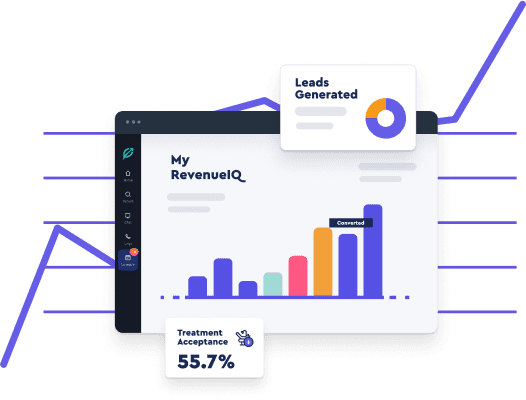Should a Business Pay for Google Reviews?

How important are Google reviews for businesses?
Google reviews are crucial for businesses as they influence purchasing decisions. Positive reviews build credibility and trust, while negative reviews can deter potential customers. They also impact local SEO rankings, making them essential for a business’s online reputation and visibility.
Should a Business Pay for Google Reviews?
The most important thing in every business is to project a positive online reputation and ensure good customer perception. Not to mention the effect that online reviews can have on your search rankings. One of the most common questions is whether a business should pay for Google reviews, especially for the purpose of improving local SEO. This tactic is generally ill-advised. Instead, businesses should focus on organic methods to garner great reviews, such as maintaining an active Google Business Profile and encouraging honest feedback from customers.
Why You Shouldn’t Pay for Google Reviews
- Violating the policies of Google:
- Guidelines: Google explicitly forbids reviews in exchange for money or discounts, among other incentives. With that said, for elaboration on what these policies mean for your Google reviews, please visit https://support.google.com/business/answer/3474122?hl=en.
- Consequences: If detected, Google will remove the fraudulent reviews and even lays a penalty on your business. These penalties can include a drop in search rankings or even the suspension of your Google My Business account.
- Loss of Confidence:
- Consumer Awareness: The new-age consumer is also increasingly able to recognize a fabricated review. Often, the too-good-to-be-true nature of feedback, generic content, or a sudden rush of positive reviews serves as a dead giveaway.
- Brand Credibility: Trust is a corner stone when customers are loyal. Provided customers think that you have paid for the reviews, your brand credibility and trustworthiness can be irreparably damaged. It is in the light of this that authenticity becomes very vital in keeping a real connection with your audience.
- Legal Ramifications:
- Regulatory Actions: Fake reviews mostly fall under Deceptive Advertising practices in most jurisdictions. A regulatory agency may fine and sue companies for these abuses. For example, the Federal Trade Commission (FTC) in the United States has done that in several cases of this nature. Here is more information on its policy concerning fake reviews: https://www.ftc.gov/news-events/press-releases/2019/10/ftc-cracks-down-fake-reviews-other-misleading-endorsements.
- Lawsuits: Regulatory enforcement actions are not the only actions that a company may be sued for by competitors or consumers for the same reason—false advertisement and deceptive practices.
- Long-Term Impact on Business: Short-Term Gains vs. Long-Term Damage: Though paying for reviews may give you short-term gain, the long-term damage in terms of lost reputation and trust can easily be too great to bear compared to those short-term benefits derived.
- Customer Retention: Genuine, happy customers are more likely to return and recommend your business. Fake reviews don’t generate any real repeat business or referrals.
- Ethical Considerations:
- Integrity: You need to have an underpinning of integrity in which you’re building your business if you want to be successful for the long term. You start buying reviews, and you start to chip away at that foundation that could eventually establish a culture of dishonesty in the company.
- Fair Competition: Entering into a scheme of practices such as paying for a review creates an unfair playing field of competition that usually hurts businesses seeking to grow honestly and ethically.
Best Practices to Get Google Reviews Organically
- Deliver Good Service: A good customer experience is at the heart of the great review. Ensure that consistently your products or services meet or rise above the expectations of customers.
- Request Reviews: Encourage satisfied customers to leave a review. A personal request, in person, via e-mail, or in a follow-up text, is magic.
- Keep it Simple: Make it easy to leave a review by sending direct links to your Google review page. You can share these links via email, on your website and on your social media posts.
- Automation of the Request Process: Review requests are sent immediately after the completion of a purchase or service. This keeps consistency high and gets you the most reviews.
Respond to Reviews: Be thankful when someone gives positive feedback. Give professional responses to negative feedback. This would show that you care about customer reviews and are willing to improve.
- Reward without a Benefit: Reward customers upon writing a review – in a form compliant with Google. This may be in the form of entering the customer into a draw or sending them an offer with discounts on the next purchase.
Get Ready to Request Google Reviews
Prior to requesting reviews, take time to get your business ready to collect and then make use of the reviews:
- Optimize Your Google My Business Profile: Make sure the profile includes relevant, up-to-date, and complete information such as the business name, address, phone number, website, etc. For more regarding your profile optimization, please visit https://support.google.com/business/answer/3038063?hl=en.
- Train Your Staff: Make sure that your staff understands customer service and, if applicable, how to request a review appropriately.
- Develop a Review Management System: Automate with tools that will help in keeping tab of reviews and responding to them on time. This will maintain a positive online reputation.
- Design a Follow-Up Strategy: Devise a system to follow up on customers after making a sale or offering a service. It can be in the form of an automated email thanking them for their business and asking for a review.
- Check Online Review Sites: Be sure to check your Google reviews and other review sites regularly so you’ll always know what your customers are saying about your business.
How Practice by Numbers Can Help
Practice by Numbers offers businesses comprehensive packages on managing and improving online reputation through Google reviews:
- Automated Review Requests: Your CRM is integrated with Practice by Numbers to personalize and perfectly time review requests to your customers, ensuring a constant flow of real reviews.
- Review Monitoring: It’s easy to monitor all of your reviews across multiple platforms, including Google, for your business with Practice by Numbers, so that you respond to feedback—good or bad.
- Data Analytics: You will know the pulse of your customers—what they like, what they don’t, and where you can improve—with the robust analytics tools from Practice by Numbers. This would be very instrumental in making data-driven decisions for customer-satisfaction-oriented improvements.
- Training and Support: Train your staff on the best practices of requesting and managing reviews, ensuring that they’re better equipped to handle customer feedback effectively with Practice by Numbers.
- Follow-Up Strategy Implementation: Design your personal follow-up strategy and implement it using Practice by Numbers for ongoing customer engagement and steady feedback.
Automating Google Review Requests
To truly be effective, and have an overview of the review feedback that comes in, create an automation as shown below:
- Pick the Right Tool: Choose a review management platform that integrates with your CRM. BirdEye, Yotpo, and Trustpilot are some of the tools that are in daily use. Practice by Numbers is an even better choice; it has very clean integration and includes all the important features.
- Build Triggers: Determine when review requests will be sent. After making a purchase, completion of service, or some time after an interaction ends, are some common triggers.
- Personalize Requests: Customize the review requests based on the information available about customers: mention their names and the item purchased, and actually be grateful.
- Test and Refine: Test your auto-responders from time to time and further refine them in terms of response rate. A/B testing with different messages will give you the right wording and timing.
- Monitor and Adjust: Keep an eye on the performance of automated review request campaigns. Fine-tune your strategy in pursuit of optimal response rates and quality of reviews received.
Conclusion
While purchasing Google reviews is not recommended for a number of ethical, legal, and trust-related reasons, it is possible for businesses to successfully collect positive reviews organically. Any business can achieve a strong online reputation through great service and an easy and simple process for customers to leave reviews, especially with the use of automation tools like Practice by Numbers. Be prepared and be proactive; that’s how customer feedback works for you and how to ensure a positive online presence for new customers and followers. Additionally, make sure your business is listed as a “Place” on Google Maps to have a Google Business Profile where customers can easily leave reviews through their browser, ultimately helping your business gain more visibility and credibility through user reviews when asked in the right way. It is important to note that while getting customers on board to write a Google business review is a huge milestone, businesses should also be mindful of Google’s algorithm and ensure that the reviews are genuine and positive.
Where dental software and PRM are concerned, having a strategy that will help your practice capture real Google reviews makes all the difference in reputation management. Ethical approaches, like the novel tools available—like Practice by Numbers—can help foster real relationships with customers for long-term success.




